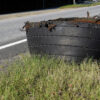By Larry Lee
Education Matters
The PDK poll of public attitudes about public schools has been a steady reflection of U.S. opinion since 1969. It is the most trusted source of public opinion about K-12 education because of its rigor, depth and commitment to capturing all voices and viewpoints.
And once again, the 2017 poll shows the ideas that lawmakers often tout as being just what education needs — vouchers, public money for private schools, increased standardized testing, etc. — are not supported by the public.
- When judging school quality, the public gives much more weight to students’ job preparation and interpersonal development than to their standardized test scores.
- There is little public support for using public money to send children to private schools. The more people know about how voucher programs work, the less likely that are to support them.
- Some of the most prominent ideas that dominate current policy debates–from supporting vouchers to doubling down on high-stakes tests to cutting federal education funding–are out of step with parents’ main concern: They want their children prepared for life after they complete high school.
- 82 percent support job or career skills classes even if that means students might spend less time in academic classes.
- 82 percent say that it is highly important for schools to help students develop interpersonal skills, such as being cooperative, respectful of others and persistent at solving problems.
- While 76 percent see advanced academic classes as highly important indicators of school quality, 70 percent say extracurricular activities are also very important.
- Less than half of all adults say performance on standardized tests is a highly important indicator of school quality.
- Wraparound services such as mental health services and after-school programs are receiving increasing attention as schools seek to ensure that students have the full range of supports they need to succeed.
- School quality is not determined by test scores. Every other potential quality metric tested in this survey far surpasses testing as a measure of school quality: having extracurricular activities, art and much, advanced academic classes, technology and engineering classes and effort to develop interpersonal skills.
And what are we doing in Alabama right now? Waiting for info that will give every school in the state a letter grade that in many cases is based primarily on test scores. And why? Because our legislature demands it.
Larry Lee is a public school advocate and co-author of the study, Lessons Learned From Rural Schools.













































